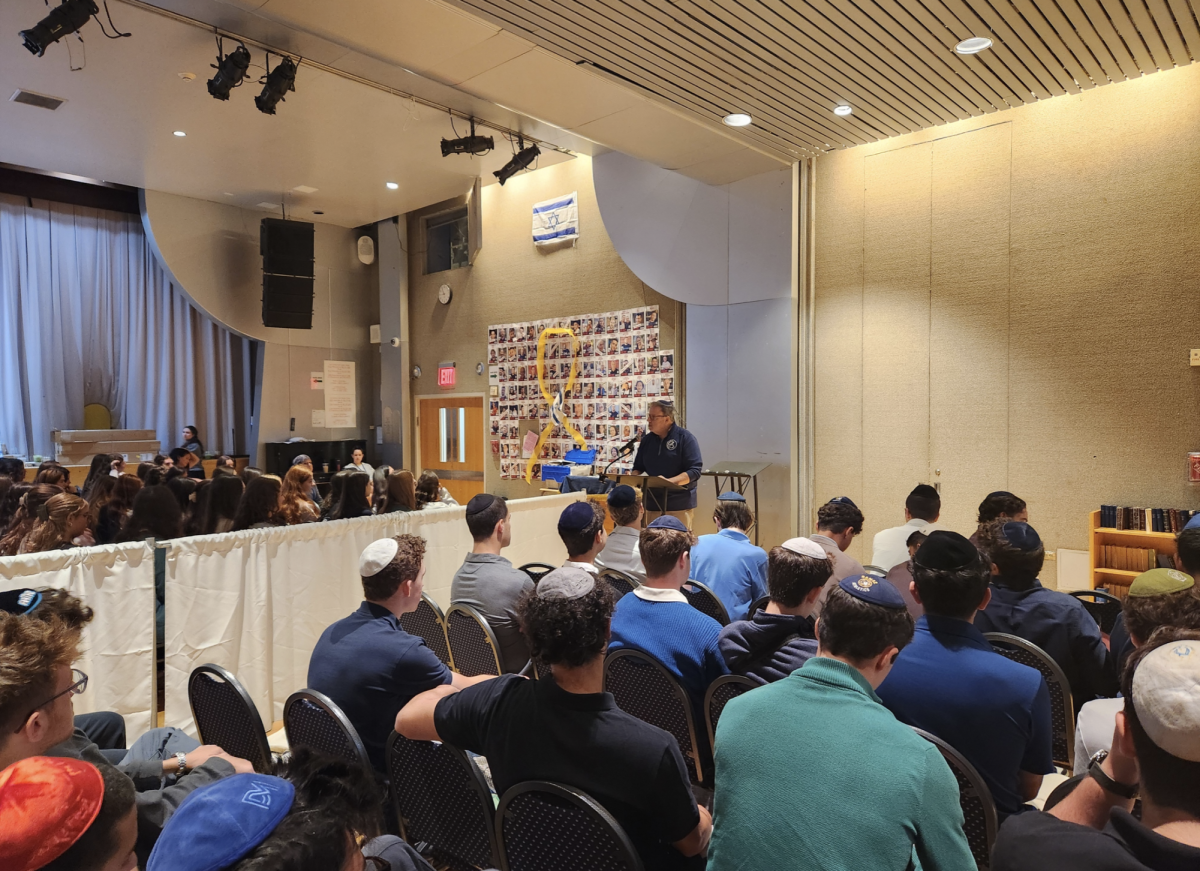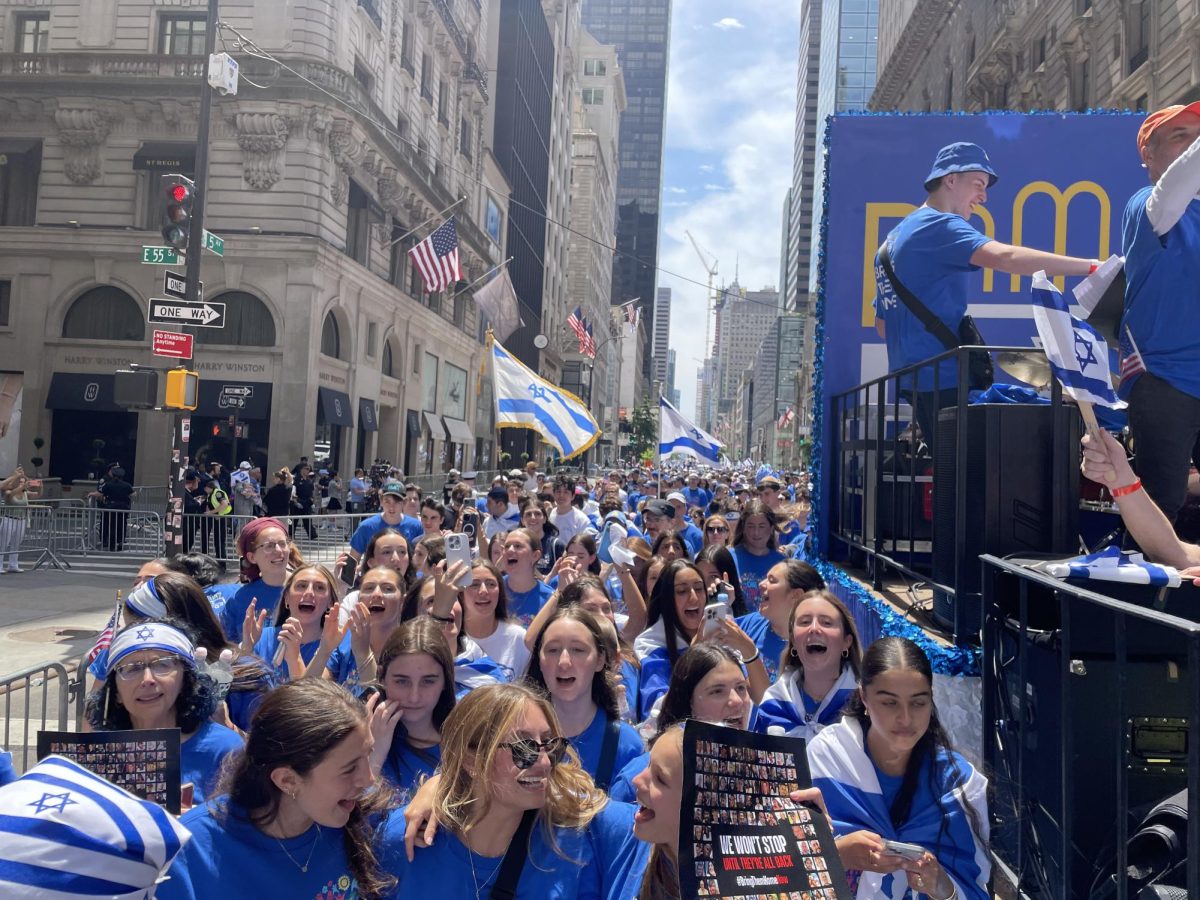A change in format for Ramaz’s annual 9/11 assembly sparked controversy among students about how best to commemorate the tragedy. While the assembly was held following tefillah, some students expressed disappointment with the shortened time period.
The assembly featured Jamie Lassner ’82, a Ramaz alumnus who was a first responder EMT at the World Trade Center during 9/11. Lassner discussed his experience on 9/11 and drew comparisons to October 7th and the ongoing war in Israel.
Later in the day, seniors traveled to the Lower East Side for a day of service. They packed Rosh Hashanah meals and heard from Hatzolah members, Jewish community leaders, and elderly citizens who were impacted by the 9/11 attacks.
Seniors who went to the day of service expressed that it allowed them to further connect to 9/11. “It was a very meaningful experience and it was great to help out the community, especially on such a momentous day,” Francesca Sisskind ’25 said.
Lassner’s speech “was eye-opening,” Ezra Werthenschlag ’28 said. “I was able to appreciate his first-hand experience on 9/11, and he really made me feel that there is a deep comparison between the situation in Israel and 9/11.”
Other students said they felt the September 11 attacks and the October 7 terrorist attacks in Israel each deserve its own assembly. “The majority of my Hebrew class thought that on 9/11, October 7 was discussed too much,” Nate Berman ’26 recounted. “They thought that on 9/11, the speaker should focus on the terrors that happened that day rather than drawing parallels to current events.”
There were also differing opinions between students and faculty about how 9/11 should be highlighted. “I thought the assembly was good, but I thought it was really short and that the school could have done more to commemorate 9/11,” Sarah Kleinhaus ’27 said. “I think that it would have made more sense for it to be during a FLEX period because it would have added more emphasis to the event.”
Rabbi Dov Pianko, the organizer of the event, said he decided to shorten the event in recent years because of student feedback. “For many years we had much longer and intense assemblies, and had a special commemoration in 2021, at the 20th anniversary. In the last few years, the feedback we got from students was that this was something that should be commemorated and noted in a serious way, but didn’t need a full 40-60 minute assembly,” he said. As a result, the administration changed the structure to a 15-20 minute assembly after tefillah to start the day with a commemoration.
Organizers were satisfied with the speaker’s approach, but emphasize the importance of student feedback for the coming years. “I was happy with the speaker, the behavior of the students, and the overall feeling of the day,” Rabbi Pianko concluded. “I would be curious how students felt. I am always interested in student feedback for this past assembly, and any future assemblies and programs. We don’t always know what is best, but we do try.”



